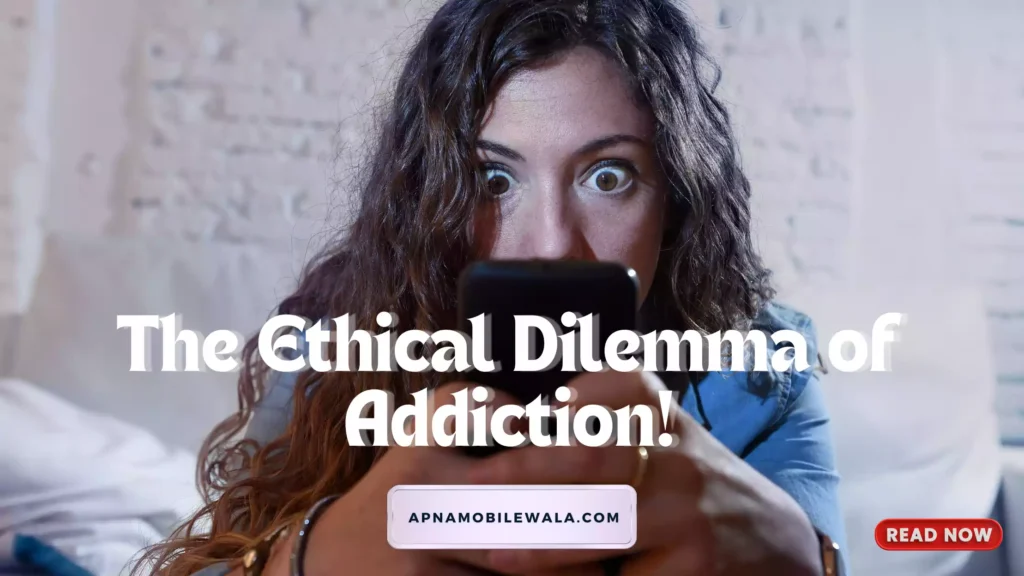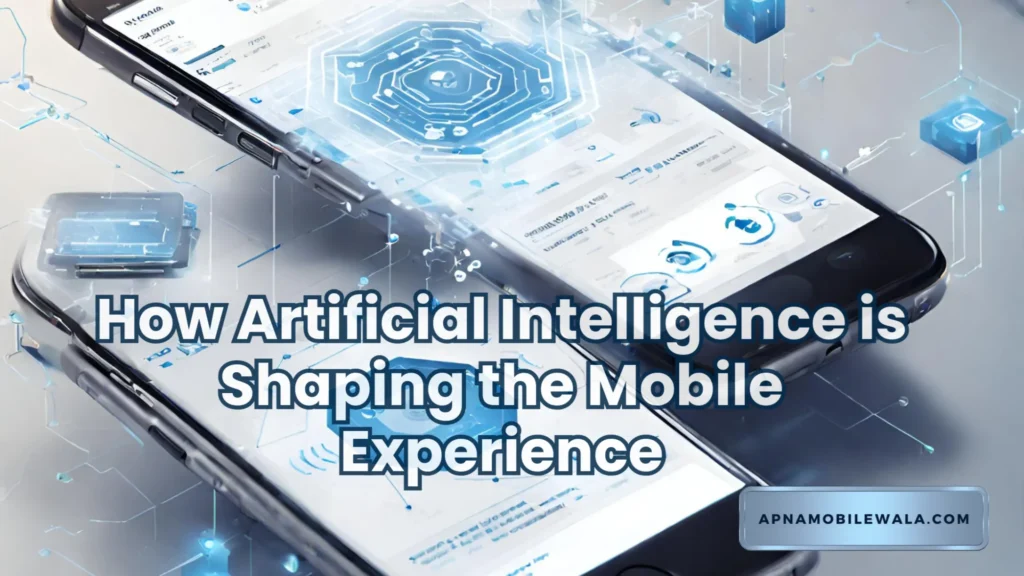The Double-Edged Sword: The Ethical Debate of Mobile Technology
Our mobile phones have become an undeniable force in our lives. They connect us, inform us, and entertain us. But beneath the convenience lies a complex ethical debate. Mobile technology raises concerns about addiction, privacy, and its overall impact on society.
The Grip of Addiction:
- Dopamine Dealers: Mobile apps and social media are designed to trigger dopamine release, creating a cycle of compulsive checking and engagement. This can lead to addiction, impacting mental health and productivity.
- Attention Deficit The constant barrage of notifications and stimuli can shorten attention spans and make it difficult to focus on deeper tasks.
Privacy Paradox:
- Data Dilemmas: Mobile apps collect vast amounts of user data, often without our full awareness. This data can be used for targeted advertising, sold to third parties, or even used for social manipulation.
- Always Watching: Location tracking, app permissions, and facial recognition features raise concerns about constant surveillance and a potential erosion of privacy.
Societal Shifts:
- Echo Chambers and Filter Bubbles: Social media algorithms can create echo chambers where users are only exposed to information that confirms their existing beliefs. This can lead to polarization and hinder civil discourse.
- The Erosion of Social Interaction: Excessive phone use can lead to social isolation and a decline in face-to-face interaction. This can have a negative impact on mental well-being and community building.
Finding Balance: A Path Forward
The answer doesn’t lie in abandoning mobile technology altogether. But a more balanced and responsible approach is needed:
- Tech Companies: Greater transparency about data collection, stronger privacy controls, and promoting healthy phone use are crucial steps.
- Users: We can be more mindful of our phone habits, set boundaries, and utilize features that promote digital wellbeing.
- Regulation: Government regulations may be necessary to ensure responsible data collection practices and protect user privacy.
The ethical debate surrounding mobile technology is ongoing. By acknowledging the potential harms and working together – tech companies, users, and regulators – we can harness the power of mobile tech for good while minimizing its negative impacts.
What are your thoughts? Share in the comments below!
10 basic Ethics on the use of Mobile Phone:
Here are 10 basic ethics to consider when using your mobile phone:
- Respect for Privacy: Don’t take pictures or videos of people without their permission. Be mindful of your surroundings and avoid capturing others unintentionally.
- Responsible Sharing: Think before you share information online. Avoid spreading rumors or unverified information, especially regarding sensitive topics.
- Curb the Cyberbullying: Don’t use your phone to bully or harass others. Remember that words can have a lasting impact, even online.
- Be Mindful in Public: Avoid loud phone calls or excessive screen brightness in public spaces. Be courteous and give others your full attention when in face-to-face interactions.
- Fight the Phishing Fight: Be wary of suspicious links or messages. Don’t share personal information or click on unknown links that could compromise your security or privacy.
- Digital Responsibility: Use your phone for positive purposes. Promote kindness and empathy online and avoid spreading negativity.
- Beware of Information Overload: Take breaks from your phone and avoid the constant urge to check for updates or notifications.
- Accuracy over Speed: Don’t rush to share information you haven’t verified. Take a moment to check facts before hitting send or post.
- Digital Footprint Awareness: Be mindful of what you post online, as it can leave a lasting digital footprint. Employers or others may search for information about you online.
- Balance is Key: Maintain a healthy relationship with your phone. Don’t let it control your life. Set boundaries and prioritize real-world connections over constant digital interaction.
Unethical Uses of Smartphones in Healthcare:
The Dark Side of Convenience: Unethical Uses of Smartphones in Healthcare
Smartphones have revolutionized healthcare, offering improved communication, access to information, and even mobile health monitoring. However, like any powerful tool, they can be misused. Here’s a look at some of the unethical uses of smartphones in healthcare:
Patient Privacy Under Threat:
- Snaps and Leaks: Sharing patient photos or medical information without consent is a serious breach of privacy. A doctor taking a picture of a rash or a nurse discussing a patient’s case on social media are prime examples.
- Unsecured Apps: Healthcare providers should be cautious about using unsecured apps to store or transmit patient data. A data breach could expose sensitive medical information.
Doctor Distraction, Patient Neglect:
- Focus Fumbled: Doctors or nurses checking their phones during consultations or while on rounds can lead to missed details and potentially compromise patient care.
- Delayed Decisions: Urgent situations requiring immediate attention could be delayed if a healthcare provider is engrossed in their phone.
Misinformation and Self-Diagnosis:
- Dr. Google Isn’t Always Right: Patients relying solely on unverified health information from the internet can make poor decisions about their health. Healthcare providers should be a trusted source for accurate medical advice.
- Cyberchondria: Excessive internet searches about symptoms can lead to unnecessary anxiety and worry.
Unethical Marketing and Exploitation:
- Targeted Advertising: Companies might exploit patient data to target them with disease-specific advertising or unproven treatments.
- Preying on the Vulnerable: Patients with serious conditions might be targeted with misleading information or unrealistic promises through their smartphones.
Combating Unethical Practices
- Clear Policies and Training: Healthcare institutions should have clear policies on smartphone use and train staff on data privacy and responsible mobile practices.
- Secure Technology: Using secure communication channels and encrypted apps for healthcare data is crucial.
- Patient Education: Educating patients on how to find reliable health information online and the dangers of self-diagnosis is important.
By acknowledging these concerns and taking steps to mitigate them, we can ensure that smartphones continue to be a force for good in healthcare, without compromising patient privacy or care quality.
Impact of Internet Addiction on Mental Health:
Scrolling Towards Trouble: How Internet Addiction Impacts Mental Health
The internet has become an undeniable force in our lives, offering connection, information, and entertainment at our fingertips. But for some, this constant connectivity can spiral into internet addiction, negatively impacting mental health. Let’s delve into the potential consequences of excessive internet use:
Anxiety and Depression:
- Social Comparison Trap: Social media platforms often showcase idealized versions of life, leading to feelings of inadequacy and social isolation. This can fuel anxiety and depression, especially in vulnerable individuals.
- Fear of Missing Out (FOMO): The constant influx of updates and notifications can create a fear of missing out, leading to anxiety and a need to stay constantly connected.
Negative Impact on Mood:
- Dopamine Downfall: Excessive internet use, especially with social media and gaming, can disrupt dopamine regulation in the brain. This can lead to mood swings, irritability, and difficulty experiencing pleasure from offline activities.
- Sleepless Nights: The blue light emitted from screens and the stimulating nature of online content can disrupt sleep patterns. Poor sleep, in turn, worsens mood and contributes to anxiety and depression.
Cognitive Decline:
- Attention Deficit Dynamo: The rapid-fire nature of online content can lead to attention problems and difficulty focusing on tasks requiring sustained concentration.
- Memory Maze: Constantly relying on the internet for information retrieval can weaken memory formation and recall abilities.
Social and Relationship Issues:
- Real-World Disconnect: Excessive internet use can lead to social isolation and neglect of real-world relationships. Face-to-face interactions are crucial for emotional well-being and social development.
- Cyberbullying Battleground: The anonymity of the internet can embolden cyberbullying, leading to emotional distress and social anxiety.
Breaking Free: Steps to Manage Internet Addiction
If you suspect you or someone you know struggles with internet addiction, there are steps to take control:
- Self-Awareness: Track your internet usage and identify triggers for excessive online behaviour.
- Set Boundaries: Establish screen time limits and designate phone-free zones in your home.
- Seek Alternatives: Find healthy offline activities you enjoy, like exercise, spending time in nature, or socializing with loved ones.
- Professional Help: If internet addiction significantly impacts your daily life, consider seeking help from a therapist or counsellor specializing in technology addiction.
Remember, the internet is a powerful tool, but it’s important to use it responsibly. By being mindful of your online habits and prioritizing your mental health, you can maintain a healthy and balanced relationship with technology.
Thanks for Reading!
- How Will We Access Virtual Worlds on Our Phones?
- The Rise of the Subscription Phone
- Sony Xperia 1 VI Price and Review
- Realme 12 Pro Plus Review and Price
- OnePlus Nord CE4 Review and Price



